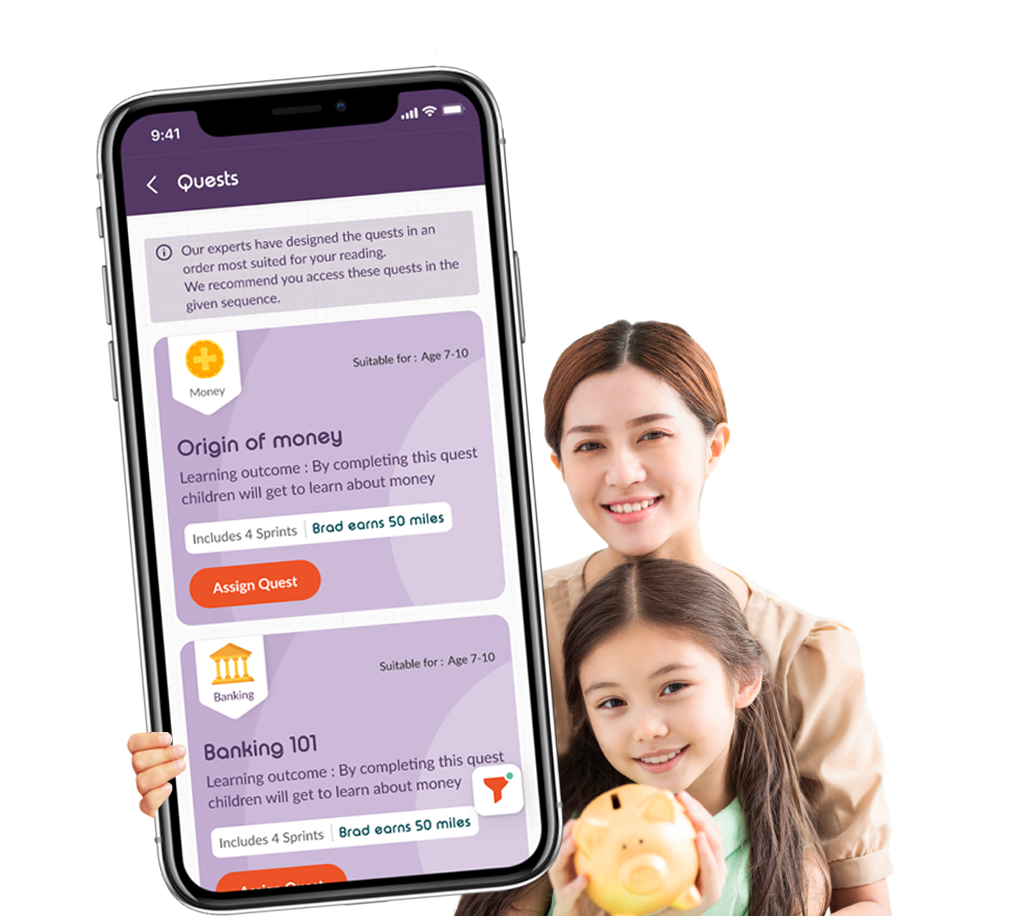Teaching Your Kids the Magic of Compounding
Compounding is a superpower. It can multiply your savings or spiral you into the debt trap. Compounding is more effective in the long run, not using this superpower and withdrawing from your own funds every year can eventually lead to a reduction in gains. With compounding, you are essentially increasing the power to reinvest and multiply your money.
To raise financially healthy kids, teaching them the skill of compounding early on can make sure they understand the importance of saving. Compounding and time become their most valuable assets, and they can grow financially over a couple of years. The question is – how do you teach them this double-edged sword effectively?
Compound Interest In a Nutshell
The key to teaching compound interest is first to teach them interest. This can be just explaining the “money earns money” concept and establishing the fact that the bank pays you a bonus when you put your money in a savings account, which is called interest.
Compounding, therefore, can be explained as an added interest on that interest, so your money gets multiplied.
Ways to Teach Your Child Compounding
Medium #1: Games
Real-Life Set-Up Games
For Younger Kids
Family Bank: You can create a family bank and put in dollars and extra interest by the end of the day. Even though it might be difficult for your kid to grasp the concept in itself, watching money grow can get them intrigued and more invested to learn compounding.
For Teens
The Penny Game: If they want to get a new video game, this can be your opportunity to incorporate a more effective way of teaching them compounding. As a part of their reward system, you can tell them you will double their savings every day for the next few days and show them how their money grows. This further establishes that delayed gratification can bring more money for a desire they wish to fulfil.
Board Games: Games like Monopoly can also teach your kid the benefit of investing and delaying spending. By investing more in a property on the board, they get higher returns from the other members. This can be a good demonstration to notice.
Medium #2: Opening a Savings Account
By opening a savings account and depositing an initial amount in the account, you can encourage the practice of compounding. Advise them to deposit their earnings from chores, pocket money, and gifts into the account to see it grow. Every quarter, make sure to sit with them and help them track their growth and help them see their savings grow. This can encourage older kids to adapt the habit themselves since they see the benefit practically.
Medium #3: Milestone Compounding Quest
With Milestone – a financial literacy app in Singapore, you can also sign up your kid as a member and kickstart their financial journey. Apart from compounding quests that ensure your child’s understanding, the app also has an interest feature, allowing parents to allocate interest on the amount saved by their kids. Furthermore, with Milestone, you can track their progress, assign tasks and reward them accordingly!
Sign Up Today!
 Milestone Edutech Pte. Ltd.
Milestone Edutech Pte. Ltd.JustCo, Centrepoint Singapore,
176 Orchard road, #04-04,
Singapore. 238843

COPYRIGHT 2021-2022 I Privacy Policy I Terms and Conditions




